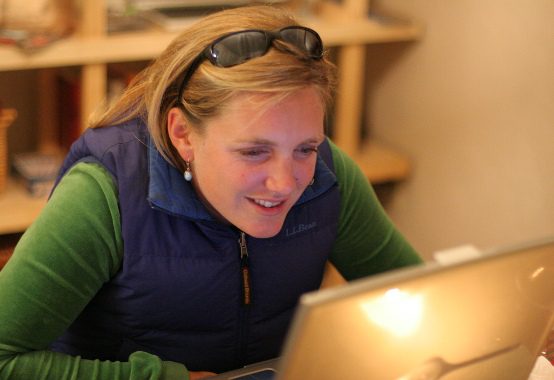Match.com Nation

Ross Douthat has been engaged in a dialogue with Matt Yglesias about dating vs. hooking up, and whether the latter makes it harder to settle down, a dialogue which I found fairly predictable (possibly because I’ve followed this argument for a long time) until the most recent entry:
If you look at Figure 1 in this 2012 paper on how Americans meet their mates, you basically see that many of non-collegiate modes of meeting a partner have been in free-fall since the 1990s. . . . and the internet, predictably, has exploded. This trend may not be a bad thing for marriage as an institution: So far, the data on unions formed online looks pretty encouraging, and it’s possible that the internet is helping to compensate for the eclipse of other forms of community, rather than contributing directly to those other forms’ eclipse.
But it seems fair to assume that there are still a lot of people who would prefer to meet their future spouse the old fashioned way — through initial flesh-and-blood encounters embedded in a larger pre-existing social network. If that’s your preference, the university campus is one of the few flesh-and-blood arenas that seems to be holding its own as a place to form lasting attachments. So for those Americans who do attend college, the case for taking advantage of its denser-than-average social landscape might actually get stronger as the non-virtual alternatives decline.
As so often with the discussions of the effect of the internet on this or that social arrangement, I suspect the impact is on-balance quite positive, with meaningful costs that are not always visible until much later.
The internet, after all, offers enormous advantages over any traditional dating mechanism. First, there’s the vastly larger selection to choose from. Then, there’s the ability to gather information – a great deal of information – anonymously and safely. Finally, there’s the far lower likelihood of a failed experiment causing collateral damage to one’s preexisting social network.
And some objections to internet dating can readily be dispensed with. For example, some might object that it encourages a “shopping” mentality in dating – but the obvious counter is: compared to what? A “shopping” mentality goes very deep in the whole culture of dating – indeed, goes all the way back to arranged marriages. The internet just provides far greater information far more safely.
An anecdote in this regard. A sometime friend of mine (we haven’t seen each other in a few years, but I still consider us friendly) once, when still single, expressed his fear of not finding a mate to an Orthodox rabbi he knew. The rabbi said: have no fear. Come to my house, and I’ll make the arrangements. What do you mean, you’ll make the arrangements? I mean, you’ll let me know some basic information, and I’ll find a girl who is similarly inclined, and you’ll come to my house for me to make the introductions. And then we’ll make the match. But – my friend objected – how will I really know if she’s right for me? Tell me something, said the rabbi, are you ready to get married? Really ready? Because here’s the thing: when a man is really ready, any uterus will do.
My friend declined the invitation, and instead joined JDate. He’s now happily married, with kids.
The hidden costs of internet dating aren’t some much to the romantic “market” as to the rest of society. How many young people don’t go to church or synagogue because there’s no reason to go there to meet marital prospects? And once that dynamic starts, it inevitably accelerates, as the residual group who does show up is increasingly untenable romantically (because they are there for other reasons – or can’t find an “adequate” mate digitally). Then there’s the problem that if you meet someone digitally, you’re probably meeting someone with a distinct social circle – as opposed to someone from within your own social world. That’s good if the relationship doesn’t work out – less risk of collateral damage. But it creates complications if the relationship results in marriage, as now you have two circles to navigate that don’t overlap well. That happens plenty if you meet in meatspace, of course, but it’s much more certain to happen if you meet digitally than if you meet, say, at church.
And then there’s the loss of “serendipity.” You meet online, and there’s no ambiguity: this is the one you looked for, and selected, from the available choices. You meet in an East Village cafe at two in the morning, and the experience could be something totally unexpected – something that changes your life. The former, logically, has a lower probability of failure. But it also has a lower probability of surprise. (For that very reason, internet matchmaking seems unlikely to appeal to twenty-somethings who don’t “need” to get married; it’s synergistic, in other words, with a culture of hooking up/experimenting/focusing on career for a period, and then settling down.)
The hidden costs of internet dating, in other words, look a lot like the hidden costs of internet retailing. It’s great for the consumer, but it has real social costs as, for example, the neighborhood bookstore goes out of business.
What I’d expect to see as time goes by is a “barbell” distribution of age of marriage among the college-educated: a small hump of marriages at the end of and soon after graduation from college, then a trough, then another, much bigger hump in the early 30s, with a long tail extending into the early 40s.
Which doesn’t strike me as problematic at all, except in terms of the ability of the two barbells to understand each other.
Comments